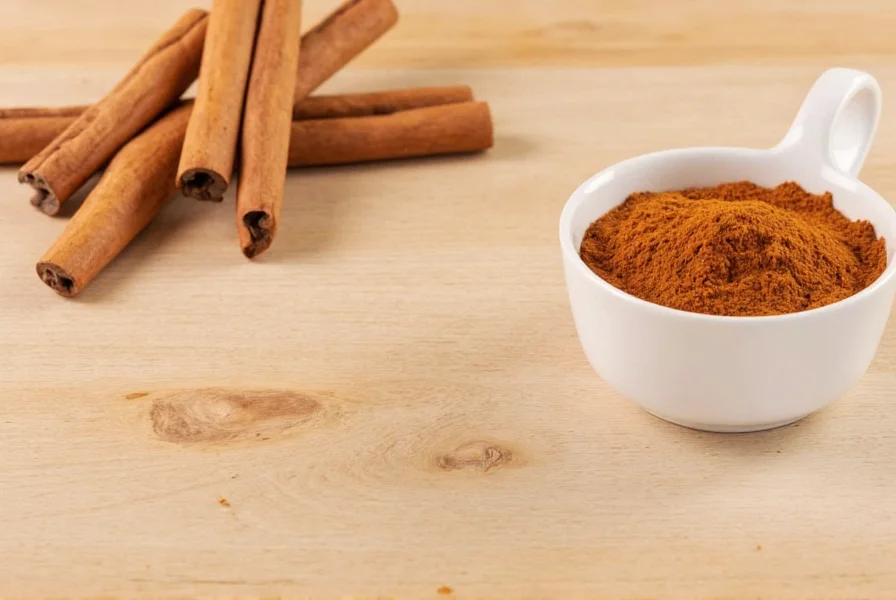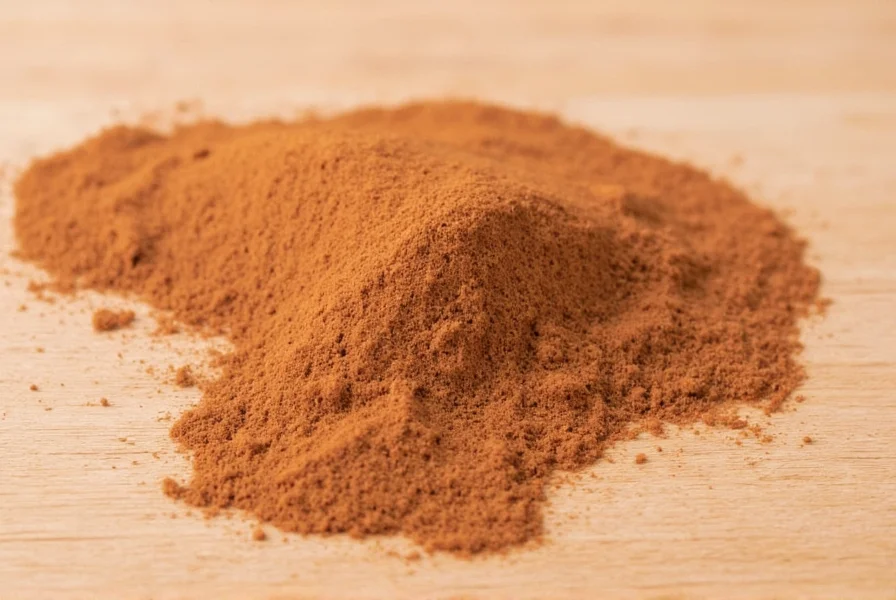Understanding Cinnamon's Relationship with Acid Reflux
When exploring natural approaches to managing acid reflux, many people wonder about the effects of common spices like cinnamon. This warm, aromatic spice appears in countless recipes and traditional remedies, but its impact on digestive health requires careful consideration—especially for those prone to gastroesophageal reflux disease (GERD).
What Science Says About Cinnamon and Digestion
Cinnamon contains compounds that may influence digestive processes. Research published in the Journal of Agricultural and Food Chemistry indicates that cinnamaldehyde, cinnamon's primary active component, can stimulate gastric acid secretion in laboratory settings. While this might aid digestion for some, it could potentially worsen symptoms for individuals with sensitive stomachs or existing acid reflux conditions.
A 2015 review in Complementary Therapies in Medicine examined various herbal remedies for digestive issues, noting that while some traditional medicine systems incorporate cinnamon for digestive support, clinical evidence specifically linking cinnamon to acid reflux relief remains scarce. Most studies focus on cinnamon's anti-inflammatory and antimicrobial properties rather than its direct effects on reflux symptoms.
Individual Responses to Cinnamon Vary
People experience different reactions to cinnamon consumption. Our digestive systems respond uniquely to various foods and spices based on multiple factors including:
| Factor | Impact on Cinnamon Tolerance |
|---|---|
| Acid reflux severity | Those with severe GERD often report more sensitivity to spicy foods like cinnamon |
| Consumption method | Diluted in food vs. concentrated supplements affects tolerance levels |
| Timing of consumption | Consuming cinnamon before bed may increase nighttime reflux symptoms |
| Individual sensitivity | Some people tolerate cinnamon well while others experience immediate discomfort |
Cinnamon Forms and Their Potential Effects
Not all cinnamon products affect digestion equally. Understanding these differences can help those with acid reflux make informed choices:
- Ground cinnamon - When used sparingly in cooking or baking, typically causes fewer issues than concentrated forms
- Cinnamon tea - May be problematic when consumed hot and concentrated, potentially irritating the esophagus
- Cinnamon supplements - Higher concentrations in capsules might trigger reflux symptoms more frequently
- Cinnamon oil - Highly concentrated form that often causes digestive discomfort in sensitive individuals

Practical Recommendations for Cinnamon Consumption
If you enjoy cinnamon but experience acid reflux, consider these evidence-based approaches:
- Start with small amounts (1/8 to 1/4 teaspoon) to assess your tolerance
- Avoid consuming cinnamon close to bedtime when lying down can worsen reflux
- Pair cinnamon with non-acidic foods rather than consuming it alone
- Choose Ceylon cinnamon over Cassia varieties, which contain lower levels of coumarin
- Monitor your symptoms for 2-3 hours after consumption to identify potential triggers
Registered dietitians specializing in digestive health often recommend keeping a food diary when testing how cinnamon affects your acid reflux. Note the amount consumed, preparation method, and any symptoms that develop within several hours.
When Cinnamon Might Help Digestion
While cinnamon isn't a proven treatment for acid reflux, some research suggests potential digestive benefits that might indirectly support gastrointestinal health. A study in Molecular Nutrition & Food Research found that cinnamon extract demonstrated anti-spasmodic effects in laboratory tests, which could theoretically help with certain types of digestive discomfort—though not specifically acid reflux.
Some people find that cinnamon's potential blood sugar regulating properties help reduce post-meal digestive issues. Since high blood sugar can sometimes contribute to delayed stomach emptying (a potential reflux trigger), this indirect effect might benefit some individuals. However, this connection remains theoretical and requires more research specific to acid reflux sufferers.
Comprehensive Acid Reflux Management
While considering cinnamon's role in your diet, remember that effective acid reflux management typically involves multiple approaches:
- Maintain a healthy weight to reduce abdominal pressure
- Elevate the head of your bed to prevent nighttime reflux
- Avoid large meals and eating within 3 hours of bedtime
- Identify and eliminate personal trigger foods beyond just cinnamon
- Consider evidence-based supplements like melatonin under medical supervision
When evaluating natural remedies for acid reflux, it's crucial to distinguish between anecdotal reports and scientifically supported treatments. While many people search for 'cinnamon for heartburn relief' or 'does cinnamon cause acid reflux,' the reality is more nuanced than simple yes-or-no answers.
Consulting Healthcare Professionals
Before making significant dietary changes to manage acid reflux, consult with a gastroenterologist or registered dietitian. They can help you determine whether cinnamon might be problematic for your specific condition and recommend appropriate dietary modifications based on your medical history.
For those experiencing frequent or severe acid reflux symptoms despite dietary adjustments, medical evaluation is essential. Persistent symptoms could indicate more serious conditions requiring professional treatment beyond dietary modifications.
Does cinnamon trigger acid reflux in most people?
Cinnamon doesn't trigger acid reflux in most people when consumed in typical culinary amounts. However, individuals with sensitive digestive systems or severe GERD may experience symptoms after consuming cinnamon, especially in concentrated forms like supplements or strong teas. Research suggests spice sensitivity varies significantly between individuals.
Can cinnamon tea help with heartburn symptoms?
While some people anecdotally report cinnamon tea helping with digestion, there's no scientific evidence supporting cinnamon tea as an effective heartburn remedy. In fact, hot cinnamon tea may worsen symptoms for some individuals due to its temperature and potential to stimulate gastric acid production. Those seeking natural heartburn relief might find better results with alternatives like chamomile or ginger tea.
How much cinnamon is safe to consume with acid reflux?
Most digestive health specialists recommend starting with small amounts (1/8 to 1/4 teaspoon) of cinnamon daily if you have acid reflux. Monitor your symptoms for several hours after consumption. If no symptoms develop, you might gradually increase to normal culinary amounts (up to 1/2 teaspoon). Avoid concentrated cinnamon supplements without consulting your healthcare provider, as these often contain much higher doses that could trigger reflux.
Is Ceylon cinnamon better for acid reflux than Cassia cinnamon?
Ceylon cinnamon (true cinnamon) generally contains lower levels of coumarin than Cassia cinnamon, which may make it gentler on the digestive system for some people. While both varieties can potentially trigger acid reflux in sensitive individuals, Ceylon cinnamon's milder flavor profile might be better tolerated. However, the difference in reflux triggers between the two types hasn't been specifically studied, so individual responses vary.
What are better natural remedies for acid reflux than cinnamon?
Several natural approaches have more scientific support for managing acid reflux than cinnamon. These include maintaining a healthy weight, elevating the head of your bed, avoiding late-night eating, and identifying personal food triggers. Some evidence supports melatonin supplementation, aloe vera juice, and certain probiotics for digestive health. Always consult with a healthcare provider before starting any new supplement regimen for acid reflux management.











 浙公网安备
33010002000092号
浙公网安备
33010002000092号 浙B2-20120091-4
浙B2-20120091-4